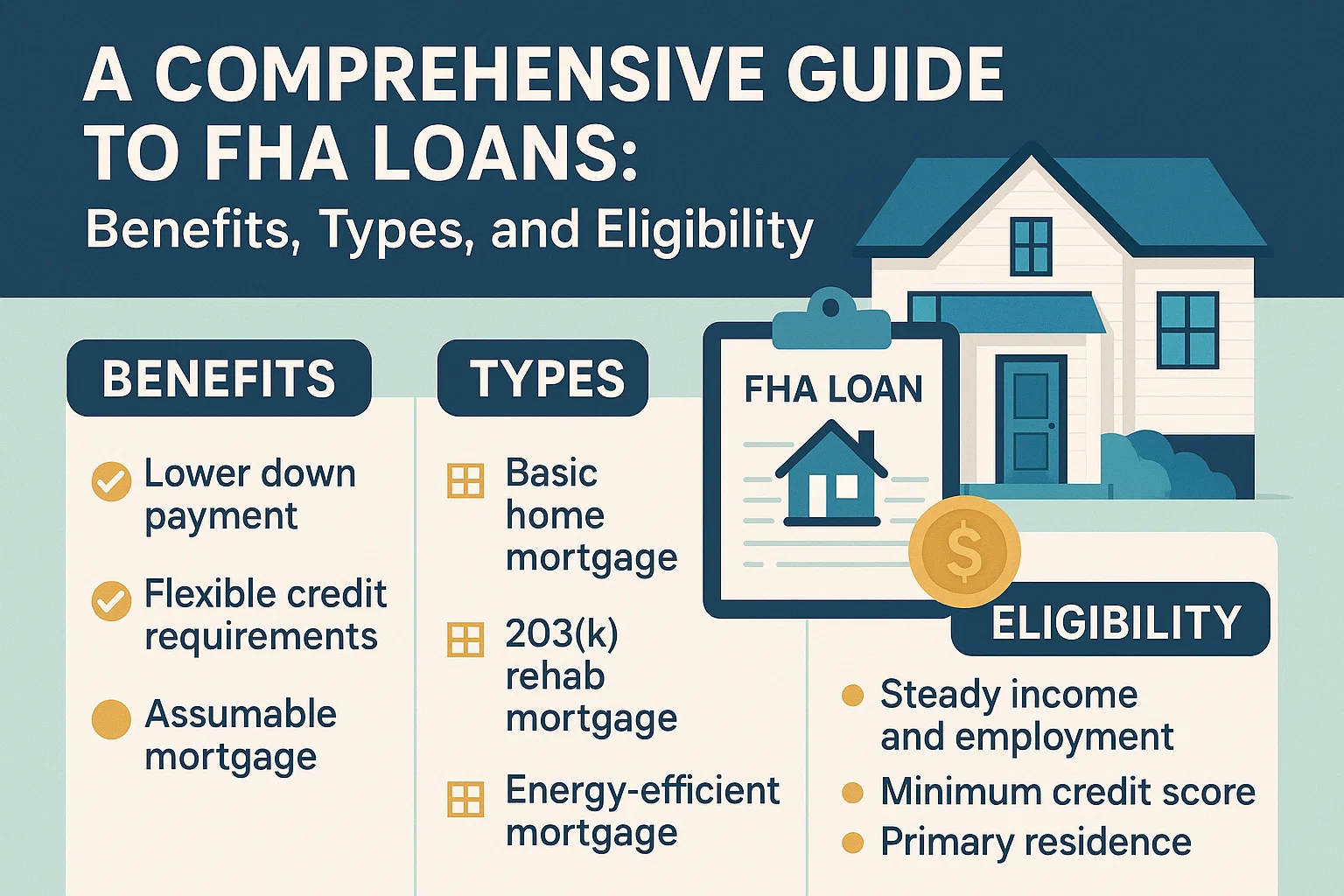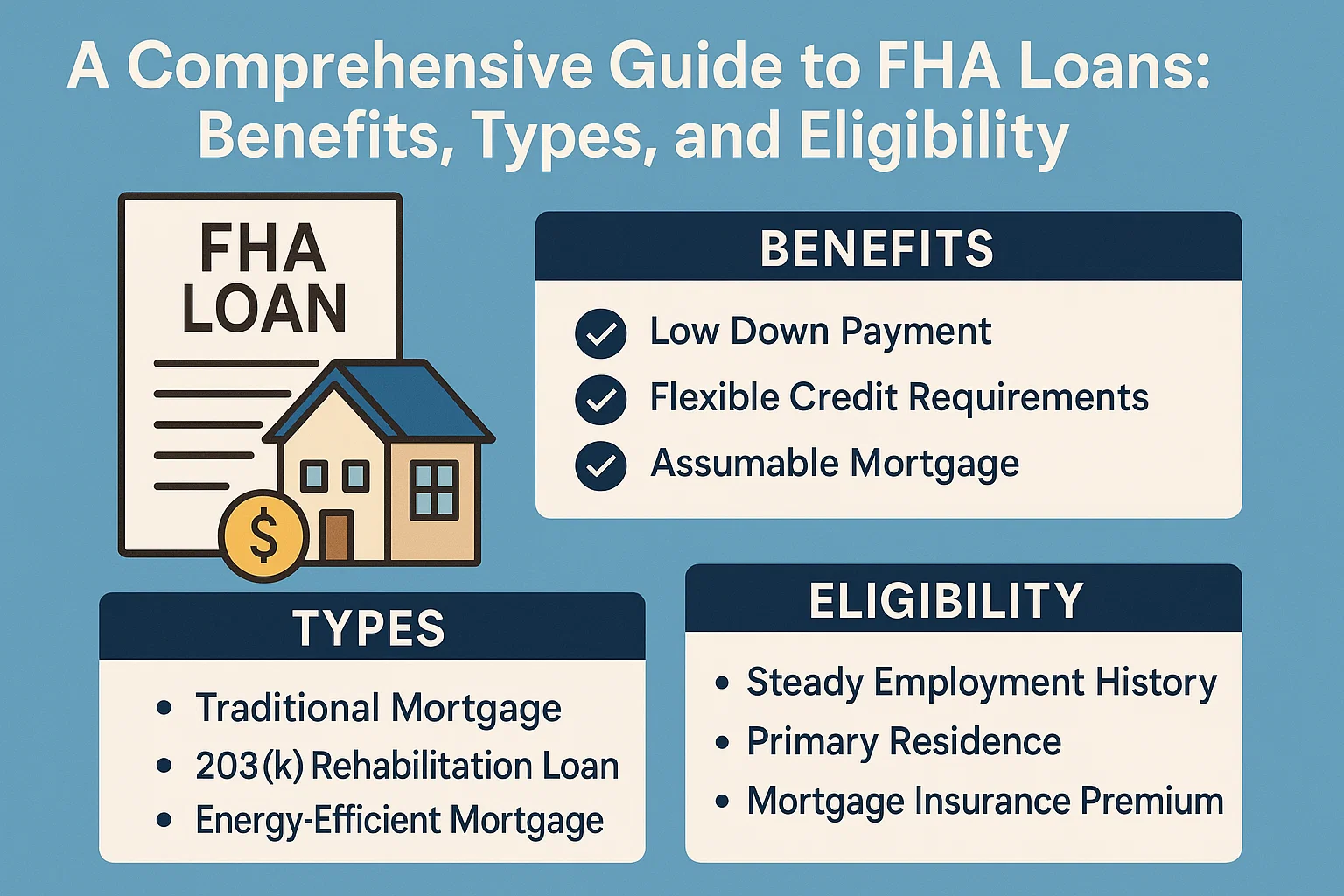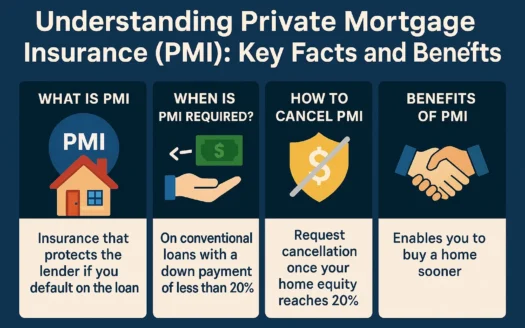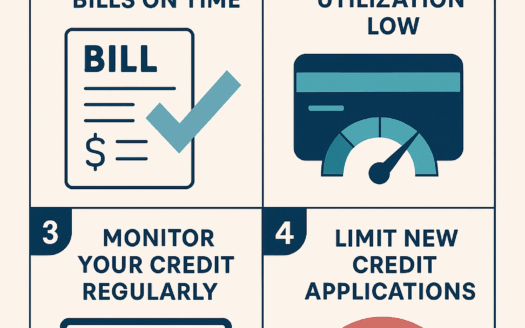A Comprehensive Guide to FHA Loans: Benefits, Types, and Eligibility

A Comprehensive Guide to FHA Loans: Benefits, Types, and Eligibility
What Is an FHA Loan?
An FHA loan is a government-backed mortgage insured by the Federal Housing Administration (FHA). This insurance reduces risk for lenders, allowing them to offer loans to borrowers who might not qualify for conventional financing. If a borrower defaults, the FHA compensates the lender, making these loans more accessible for individuals with limited savings or credit challenges.
Key Benefits of FHA Loans
- Lower Credit Requirements: Minimum credit score of 580 (vs. 620+ for conventional loans).
- Small Down Payment: As low as 3.5% down payment required.
- Flexible Debt-to-Income Ratio: Allows higher debt levels relative to income.
- Affordable Mortgage Insurance: Lower premiums compared to conventional loans with less than 20% down.
Types of FHA Loans
- Basic Home Mortgage (203(b)): Standard loan for purchasing or refinancing a primary residence.
- Rehabilitation Mortgage (203(k)): Funds home repairs and renovations.
- Energy Efficient Mortgage (EEM): Supports energy-saving upgrades for new or existing homes.
- Home Equity Conversion Mortgage (HECM): Reverse mortgage option for seniors aged 62+.
Eligibility Requirements
- Credit Score: Minimum 580 for 3.5% down payment (500-579 with 10% down).
- Debt-to-Income Ratio: Typically below 43%.
- Primary Residence: Must be used for a primary home, not rental or investment properties.
- Property Standards: Home must meet FHA safety and livability guidelines.
Who Should Consider an FHA Loan?
- First-Time Homebuyers: Low down payment and credit flexibility ease entry into homeownership.
- Borrowers with Limited Savings: Ideal for those unable to afford a 20% down payment.
- Credit-Challenged Applicants: More forgiving of past financial setbacks.
- Homeowners Seeking Renovations: Use a 203(k) loan to finance repairs during purchase.
When to Explore Alternatives
- High-Cost Areas: FHA loan limits may restrict borrowing power in expensive markets.
- Rental or Investment Properties: FHA loans are exclusive to primary residences.
- Significant Home Repairs Needed: Properties must meet minimum safety standards at purchase.
- Strong Credit and Savings: Conventional loans may offer better terms for qualified buyers.
Final Considerations
FHA loans provide a valuable pathway to homeownership for many borrowers, but they aren’t universally ideal. Assess your financial situation, long-term goals, and property needs to determine if an FHA loan aligns with your priorities. Always compare multiple mortgage options to secure the best terms for your circumstances.




